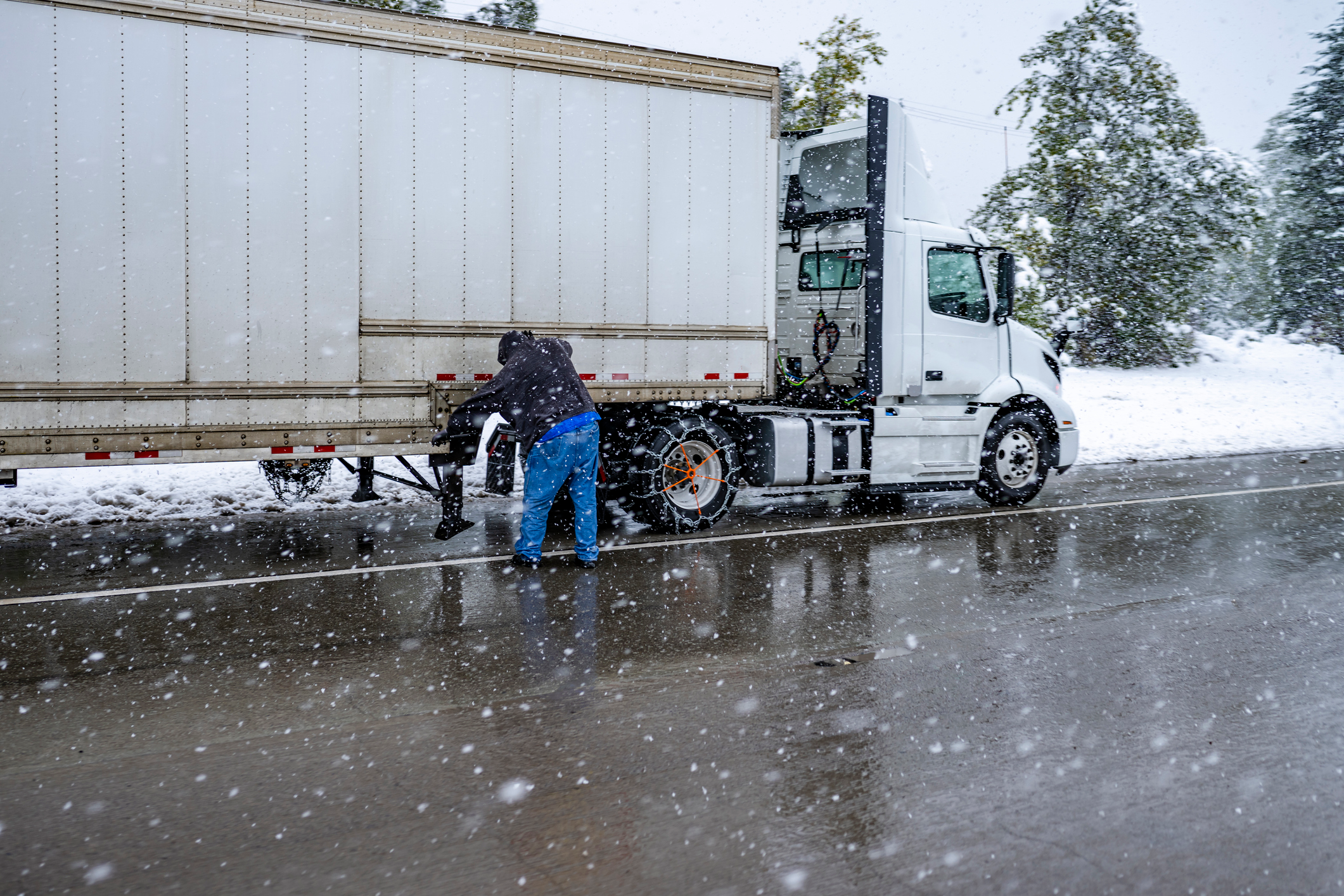Best Practices for Keeping Your Drivers Safe and Productive In the Winter

While every season presents weather conditions that make driving difficult for fleet drivers, winter can be especially challenging and nerve-wracking for even the most skilled and experienced drivers.
Successfully navigating freezing rain, sleet, snow, ice, blizzards, and low visibility can be tricky enough. Add to the mix motorists who lack the skills needed to safely maneuver their vehicles in winter conditions, and you have an uptick in crashes, long delays, and temporary road closures. For drivers and fleet managers, it’s nothing short of a nightmare — but nothing that winter best practices can’t calm and significantly enhance driver safety and the efficiency of your operations.
Let’s take a look.
Conduct Thorough Vehicle Inspections
Ensure your vehicles are road-ready for winter by being proactive and conducting pre-winter vehicle inspections. Check the:
- Tires
- Brakes
- Lights
- Fluids
- Defroster and heater
- Battery
- Wipers and wiper fluid
- Windshield for cracks
Stay on top of preventive maintenance schedules and equip vehicles with winter essentials, including snow tires, tire chains, and antifreeze.
Provide Winter Driving Training
Be confident that your drivers know how to safely navigate winter roads by providing extensive and specialized training that gives them the knowledge and skills to handle winter conditions with ease. Areas to cover include winter driving techniques, understanding road conditions, and what steps to take in an emergency.
Stress the importance of defensive driving in keeping drivers safe. To that end, instruct your drivers to:
- Increase following distance
- Steer clear of tracks from other vehicles
- Reduce speed
- Avoid sudden movements and hard braking on slippery surfaces and making unnecessary lane changes
- Be extra cautious on bridges, overpasses, and shady areas where ice typically forms first
Keep a Close Eye on Weather
Stay ahead of weather coming your way by closely monitoring local and regional weather forecasts. Solutions like AI-powered weather alert technology that’s designed for fleet managers can be helpful here. Look for a tool that provides severe weather notifications along with images of an approaching weather event, the event’s real-time location on a map in relation to your routes, and when and where the event will occur.
With this information, you can plan routes more effectively, which is a huge plus for your drivers’ safety and sanity, and your peace of mind.
Promote Regular Communication
Establishing open lines of communication with your drivers will help them feel comfortable discussing what happens on the road and immediately reporting any issues or concerns so you can take action.
Communication is crucial to successful and safe fleet operations but is especially helpful in challenging winter conditions. Having information from drivers on what is happening on their end can be invaluable in route planning and making informed decisions that affect driver safety and your fleet operations.
Analyze Data
Studying data collected from the previous winter can prepare you to keep your drivers safe for the present winter. Take note of driving behaviors or maintenance failures that affected your fleet operations. For example, maintenance issues that affected engine starting or unsafe driving behaviors by individual drivers, such as excessive idling, speeding, and hard braking.
Provide Emergency Kits
Equip every vehicle with an emergency kit. You hope your drivers won’t need to use them, but they are there should they need them. Essentials to include are:
- Jumper cables and safety flares
- Shovel and ice scraper
- Extra windshield wiper fluid
- Gloves, heavy coats, and blankets
- Non-perishable food and bottled water
- Flashlight
- Tools for making minor vehicle repairs
- First-aid kit
Encourage Regular Breaks and Rest
Winter driving demands heightened focus and concentration by your drivers, which can lead to fatigue. To combat fatigue and help drivers stay alert and focused, encourage your drivers to make regular breaks a part of their daily schedule. Fatigue can impair reaction time, judgment, vision, concentration, and alertness, which can cause driving errors and accidents.
Invest in GPS Tracking and Fleet Management Software
With winter weather conditions, route delays, and road closings, GPS tracking and fleet management software can help ease these winter travel challenges. Leveraging them gives you the information you need to stay informed about the status of each vehicle, maintenance alerts to spot concerns before they become safety hazards, and information to reroute drivers to safer and less congested roads — saving you time, money, and frustration and most importantly, helping keep your drivers safe.